13th
July 2013: Broxbourne Wood, Hertfordshire
I am not sure if it was the phenomenally hot day on
Saturday, with temperatures reaching 30 degrees Celsius, or the fact that this
trip was to one of the county hot-spots for all things ecological, but we did
have a staggering 27 people turn up for the Herts Moth Group trip to Broxbourne
Wood National Nature Reserve on 13th July 2013. The West Car Park
was completely filled; at one point a police car nosed in, looked, probably
thought we were a bunch of weirdos and immediately drove off having turned on
his blue lights! In addition to myself, five other people had brought traps and
so, as darkness approached, we made use of the fact that the wood has a long
and straight ride up the middle; traps were loaded into my Landrover and
dropped off at intervals along the ride where they were set up by their owners.
In all we ended up with 10 lights here, stretched over a linear distance of 700
metres but, of course, dipping into the sides and various clearings. I confess
that I was rather lazy and only one of these (the furthest from the car park)
was mine, but as it turned out we really did not need the other five I had in
the vehicle. Once these lights were fired up, I also set up a sheet on the side
of the Landrover in the West Car Park. People were then free to wander along
the trap line and/or stay at the sheet and see what came in.
Almost immediately, the moths started coming and they were
still coming as the last four of us packed up the last trap at just after 3 am
(most people having left in stages between midnight and about 2 am). I am
pretty sure that if we had stayed another hour until daybreak we could easily
have added a dozen or more further species to the list, but as it is we had to
make do with a total of 208 moth species! Very recently, I was moaning
that “hundred nights” were a thing of the past (and of course, when moth-ers
talk of “hundred nights” they mean 100 macros). Well … our macro total on
Saturday night was 116 species. The astute will realise that this means we
had 92 species of micro, but to my knowledge there are at least 3 further
species awaiting dissection and it is possible that when this list appears that
someone will e-mail me with others that I have overlooked.
There are some rather “good” moths for Hertfordshire in the
list – use the Herts Moth Book (or if you are under 50, the web site) to look
them up. In number order, I might perhaps suggest you look up, amongst
others, 397: Glyphipterix thrasonella (rare in the county); 1088: Pseudosciaphila
branderiana (very local); 1449: Elegia similella (nationally
scarce); 1494: Capperia britanniodactyla (last recorded in the county at
this site); 1771a: Thera cupressata Cypress Carpet (recent colonist –
first county record was in 2006); 1943: Hypomecis roboraria Great Oak
Beauty (extremely local – we had several in the traps and at the sheet); 2039: Atolmis
rubricollis Red-necked Footman (almost certainly part of the recent
immigration – we had 6). Two species, in the form of 0926: Phalonidia
manniana and 1375: Ostrinia nubilalis have recently been split into
two species each – we have retained specimens but not yet looked at these
critically. It was good to have both Aethes cnicana and Aethes
rubigana so they could be compared and there were other species pairs too,
which made the evening informative as well as fun (e.g., Clouded Brindle and
Clouded Bordered-brindle). Happily, the numbers of individuals of each species
appear to have resumed a near normal setting, although there were singles of
just a few species. There were several Satin Beauties, mostly in my trap at the
far end of the line and at the end of the session around 2.30 am. Here too, I
am told by others, Violet Ground Beetles (Carabus violaceus) were making
off with large numbers of Leopard Moths that had not made it all the way to the
safety of the trap! Good numbers of Great Oak Beauty emphasise the nature of
the woodland habitat at Broxbourne.
Those
marked with an asterisk (*) have been named by genitalia dissection. Thanks to
all the trap operators who gave me lists of moths from their traps throughout
the course of the evening. Please tell me if I missed anything.
C.W.Plant
Below
I have listed the species that were present in my traps.
As the
group was spread out, my traps got different species to what the others got,
the best species by far were 2 scarce Map-winged Swifts that came to the
Actinic.
Also the rare micros wee very pleasing to see in my traps.
12/07/13 – Broxbourne Woods - 1x 125w MV Robinson Trap,
1x 160w MBT Trap & 1x 80w Actinic Trap run from 9.45pm until 3.00am
Ghost Moth
Map-winged Swift
Tischeria ekebladella
Leopard Moth
Caloptilia alchimiella
Argyresthia goedartella
Scythropia crataegella
Yponomeuta evonymella
Paraswammerdamia
nebulella [NEW!]
Cedestis gysseleniella [NEW!]
Prays fraxinella
Plutella xylostella
Ypsolopha
ustella
Coleophora flavipennella
Batia unitella
Carcina
quercana
Pseudatemelia flavifrontella [NEW!]
Parachronistis albiceps [NEW!]
Teleiodes vulgella
Teleiodes luculella
Blastodacna hellerella
Phalonidia manniana
Agapeta hamana
Aethes cnicana
Cochylis atricapitana
Pandemis cerasana
Pandemis
heparana
Archips podana
Archips
xylosteana
Lozotaeniodes
formosanus
Epagoge
grotiana
Ditula angustiorana
Pseudargyrotoza conwagana
Cnephasia asseclana*
Aleimma loeflingiana
Tortrix viridana
Spatalistis bifasciana [NEW!]
Celypha lacunana
Hedya pruniana
Hedya nubiferana
Hedya salicella
Apotomis turbidana
Ancylis achatana
Zeiraphera
isertana
Epiblema uddmanniana
Eucosma cana
Eucosma obumbratana
Spilonota ocellana
Rhyacionia pinivorana
Chrysoteuchia culmella
Crambus lathoniellus
Catoptria pinella
Dipleurina lacustrata
Eurrhypara hortulata
Perinephela lancealis
Udea prunalis
Udea olivalis
Endotricha
flammealis
Phycita
roborella
Ephestia parasitella
Capperia
britanniodactyla [NEW!]
Pterophorus pentadactyla
Adaina microdactyla
Drinker
Pebble Hook-tip
Peach Blossom
Buff Arches
Figure of Eighty
Blotched Emerald
Common Emerald
Clay Triple-lines
Blood-vein
Least Carpet
Small Fan-footed Wave
Treble Brown Spot
Riband Wave
Silver-ground Carpet
Common Carpet
Barred Straw
Common Marbled Carpet
Barred Yellow
Blue-bordered Carpet
Grey Pine Carpet
July Highflyer
Small Rivulet
Foxglove Pug
Wormwood Pug
Currant Pug
Grey Pug
Green Pug
Double-striped Pug
Small White Wave
Small Yellow Wave
Clouded Border
Tawny-barred Angle
Brown Silver-line
Bordered Beauty
Lilac Beauty
Swallow-tailed Moth
Peppered Moth
Willow Beauty
Mottled Beauty
Satin Beauty [NEW!]
Great Oak Beauty
Pale Oak Beauty
Engrailed
Brindled White-spot
Bordered White
Common White Wave
Common Wave
Clouded Silver
Light Emerald
Barred Red
Poplar Hawk-moth
Elephant Hawk-moth
Buff-tip
Lobster Moth
Iron Prominent
Pebble Prominent
Maple Prominent
Pale Prominent
Yellow-tail
Rosy Footman
Red-necked Footman
Scarce Footman
Buff Footman
Common Footman
Buff Ermine
Short-cloaked Moth
Heart and Club
Flame
Flame Shoulder
Large Yellow Underwing
Ingrailed Clay
Double Square-spot
Smoky Wainscot
Minor Shoulder-knot
Poplar Grey
Miller
Grey Dagger
Bird's Wing
Small Angle Shades
Dark Arches
Light Arches
Clouded-bordered Brindle
Clouded Brindle
Dusky Brocade
Rufous Minor*
Tawny Marbled Minor
Small Dotted Buff
Uncertain
Marbled White Spot
Scarce Silver-lines
Oak Nycteoline
Burnished Brass
Beautiful Golden Y
Spectacle
Beautiful Hook-tip
Straw Dot
Snout
Fan-foot
Small Fan-foot
 |
| Birds Wing |
 |
| Bordered White |
 |
| Capperia britanniodactyla |
 |
| Cedestis gysseleniella |
 |
| Clay Triple-lines |
 |
Ebulea crocealis |
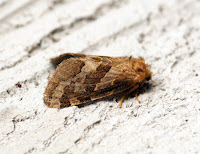 |
| Map-winged Swift |
 |
| Parachronistis albiceps |
 |
| Paraswammerdamia nebulella |
 |
| Pseudatemelia flavifrontella |
 |
| Rosy Footman |
 |
| Satin Beauty |
 |
| Small Dotted Buff |
 |
| Spatalistis bifasciana |

 Musotima nitidalis
Musotima nitidalis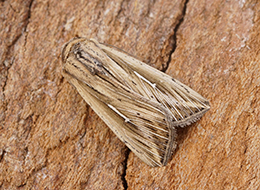 L-album Wainscot
L-album Wainscot Feathered Ranunculus
Feathered Ranunculus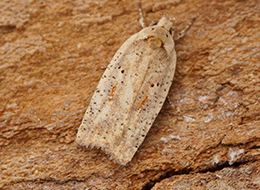 Agonopterix nervosa
Agonopterix nervosa Blossom Underwing
Blossom Underwing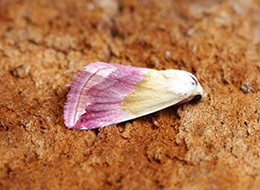 Beautiful Marbled
Beautiful Marbled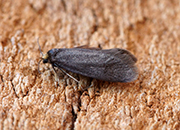 Lampronia fuscatella
Lampronia fuscatella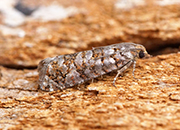 Gravitarmata margarotana
Gravitarmata margarotana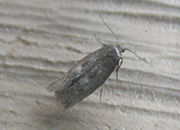 Perittia obscurepunctella
Perittia obscurepunctella Black-spotted Chestnut
Black-spotted Chestnut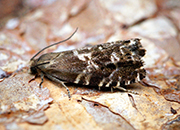 Cydia pactolana
Cydia pactolana














































No comments:
Post a Comment